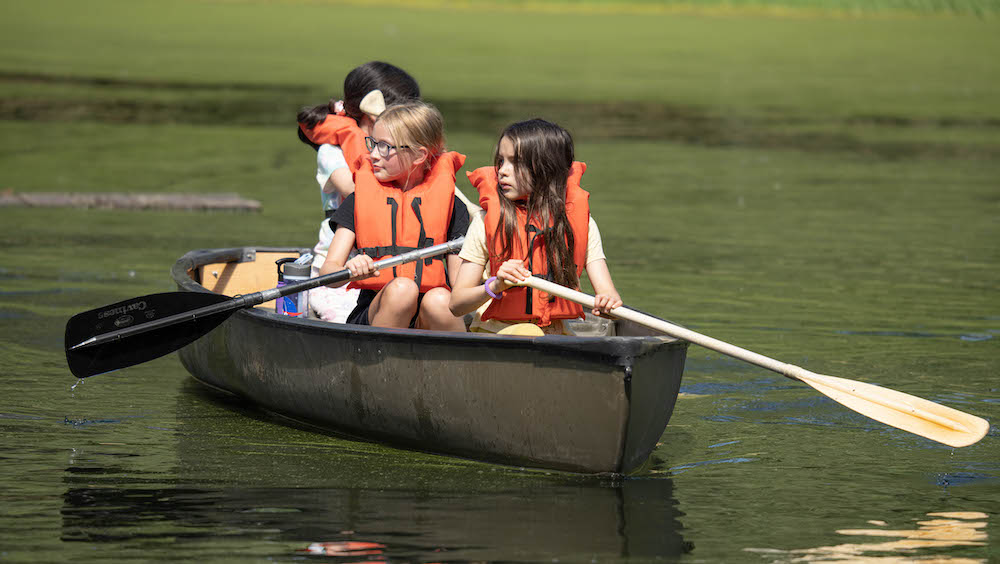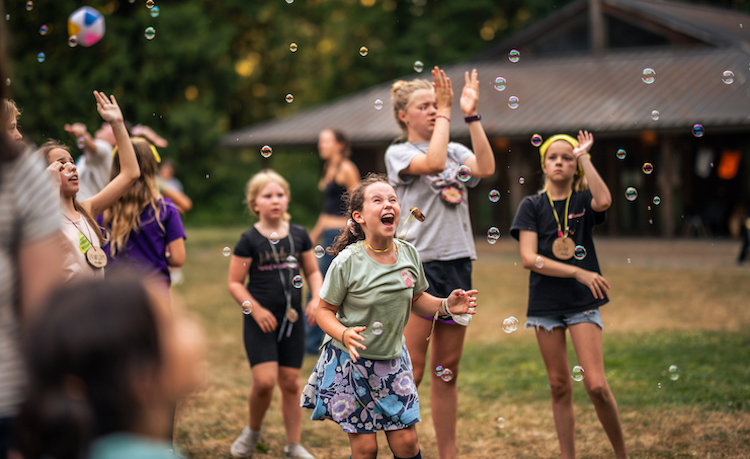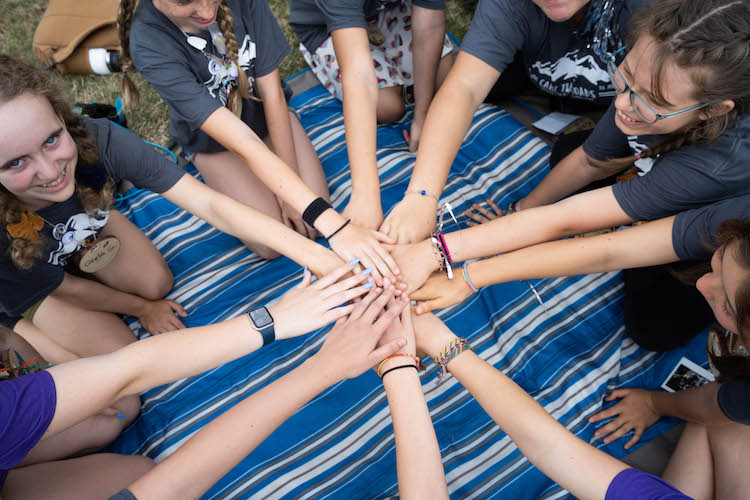For many kids, camp is the highlight of summer break, and well-deserved peace and quiet for parents. Day camps are great options for lots of families, but what if your kid is asking for more camp? Here’s how to know whether your child — and let’s be honest, you, too — is ready for the next step in their summertime adventures: Overnight camp.

Camp is a great place for kids to practice and build their independence and confidence away from home, says Erin McPherson, the director of Camp Two Roads, an overnight outdoors camp for girls in Yamhill.
McPherson says she recommends to parents and caregivers that their child has had successful sleepovers (grandma’s house counts) and tried out day-long camps before embarking on a week-long, overnight experience. She also says that campers should confidently be able to keep track of their belongings, as well as basic hygiene like teeth-brushing, hand-washing and showering.
“Getting them familiar with and comfortable in nature, is also a helpful step in preparing for a first summer at camp,” adds Sarah Hinton, the assistant camp director of the historic Camp Namanu along the Sandy River. “Hiking and camping trips can get young people excited to spend more time outdoors.”

While parents are instrumental in helping their kids build up their confidence outdoors and away from home, overnight camps provide a solid foundation when it comes to packing and efficiently dealing with any allergies and medications. McPherson and Hinton say their respective overnight camps work closely with camp counselors, nurses and cooks to ensure campers take any needed medications and avoid any foods they’re allergic to.
They’re also equipped to deal with bedwetting. “Bedwetting is nothing to be ashamed of, especially in a new environment,” says Hinton. “Camp staff are prepared to deal with any bedwetting situations in a discreet manner, by helping campers wash up, running a load of their laundry, and making sure they feel reassured and not embarrassed about the incident.”
What about when they get homesick? “Our cabin counselors are trained to pick up on signs of homesickness,” says McPherson, “to take time to listen to and normalize the camper’s emotions by acknowledging the pain they are feeling and to take however much time it needs to help them work through it.”
Hinton adds that she recommends parents help pack items familiar and comforting for them to aid in any nighttime homesickness. “For example, their favorite pajamas, a stuffed animal or cozy blanket that will help them feel connected while away.”
Talking up their big adventure before drop off also helps in staving off the away-from-home-blues and first day jitters. Even experienced overnight campers can be nervous on the first day, says McPherson. “If your daughter is nervous about coming to camp, reassure her that you know that she will do great and that all of the other girls feel the same way.”
Overnight camps websites are a great place to find detailed information about what to expect, what your child will be doing and ways to keep in touch. “Staff are there to support their camper in moments of need, but we find that parents are often more nervous than their campers,” says Hinton. “Writing mail to be delivered to your camper during the session is a great way to continue a connection while your camper is at camp.”

Ready to take the plunge? Check out some of our favorite overnight camp options here!
- Top 5 Places to Learn about Black History in Portland - February 20, 2024
- New Asian Restaurants for the Whole Family - January 25, 2024
- Top 5 Holiday Toy Drives - December 4, 2023





